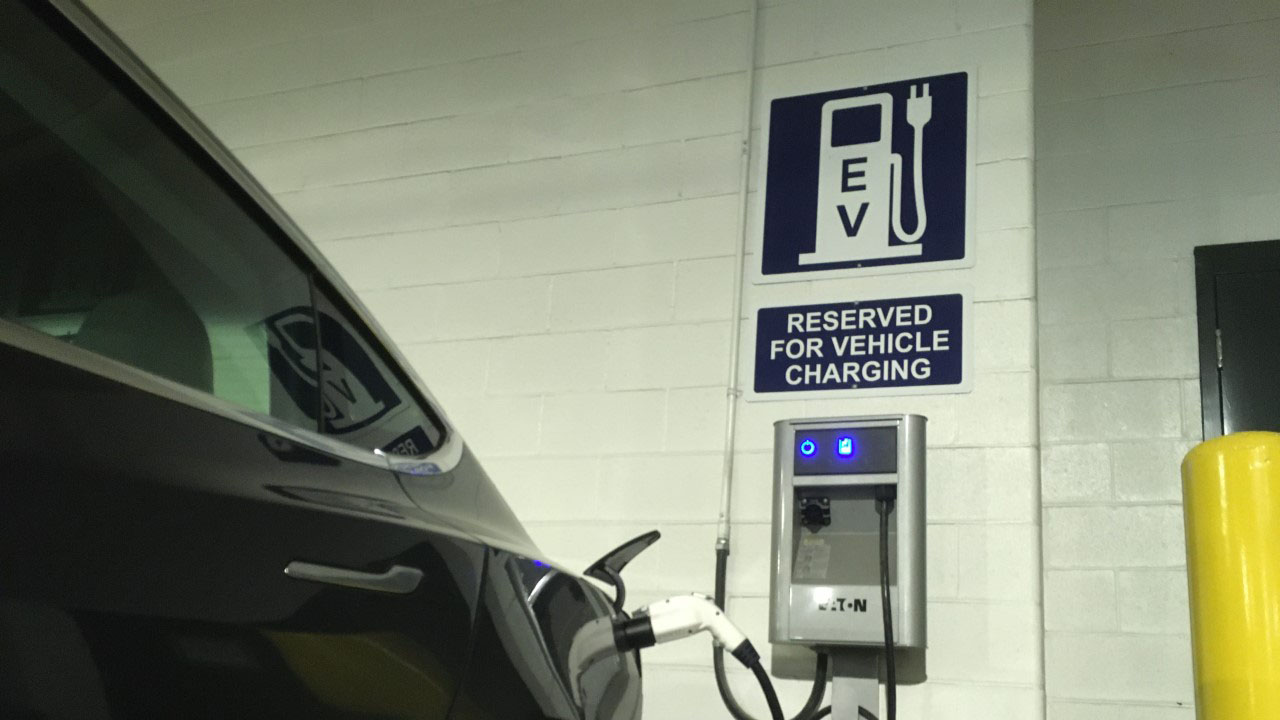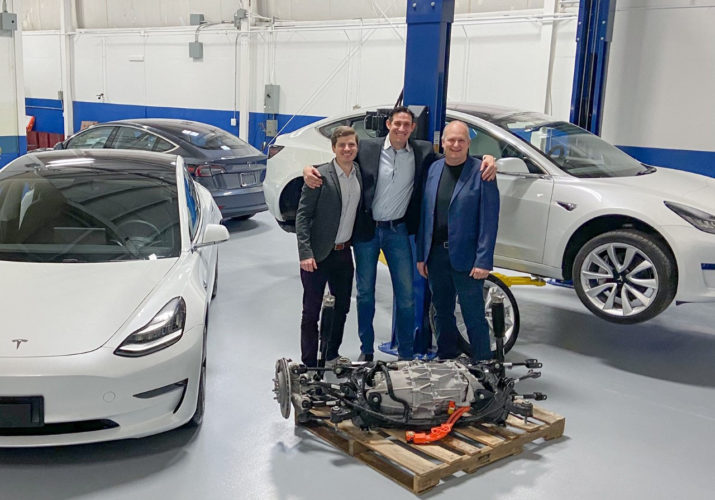New shop, old cars: HRM dealer to offer Nova Scotians more affordable electric vehicles
Burnside business will be first dealership in the province for used electric cars

caption
An electric car charges in the Halifax Central Library parking garage. A new business in Dartmouth, All EV, will be selling used electric cars, which could make them more affordable for the average Nova Scotian.A new Dartmouth-based business is set to become Nova Scotia’s first used electric car dealership, which could make it more affordable than ever to purchase an electric car in this province.
All EV Canada Inc. is hoping to open its doors in Burnside within the next month, and will restore lightly damaged EVs to be resold at a reduced price. More than just a dealership, the company will specialize in all things EV, including selling parts and operating as a service shop for EVs and hybrids of all makes.
Until now, EV owners in Nova Scotia have only been able to buy and service vehicles at dealerships owned by manufacturers. Second-hand purchases in the province were limited to manufacturers and private individuals selling their own vehicles.
David Giles, the company’s vice-president, thinks the business will help foster a growing interest in EVs.
“Atlantic Canada has a small population, but we see the need in Nova Scotia is coming on strong,” he said in an interview. “I think Nova Scotians are ready for an EV world.”
Currently there are just over 300 EVs registered in the province, but a Halifax Regional Municipality staff report in September predicted a quarter of all cars in Nova Scotia could be electric by 2040.
“People are saying, ‘Hey, I can plug this into my house and charge my car. Costs me $1.50 and I can go 400 km. I don’t have oil changes to deal with. I don’t have to worry about getting gas,’” Giles said.
He thinks price has been a barrier for many people who would otherwise be interested in switching to EVs.
Tesla, the world’s leading EV manufacturer, sells its standard Model 3 for close to $60,000, while its X and S Models both go for over $100,000. Lower-priced options like Nissan’s Leaf and Chevy’s Bolt run for over $40,000 and offer less driving range on a full charge than more expensive models.
Giles wants to offer more Nova Scotians the opportunity to buy an EV. In the beginning, All EV’s lowest range car will sell for about $12,000. Giles wants to cap the higher range vehicles at $50,000.
A Red Seal automotive service technician, Giles has been working on EVs since he first rented one years ago in order to take it apart and study the inner-workings. He’s since purchased a few of his own and taught students at NSCC on the technical aspects of the vehicles for over 10 years.

caption
All EV co-founders Jérémie Bernardin (L), Jeff Farwell (C) and David Giles (R) stand between two Teslas in their shop in Burnside. Their new business will specialize in EV sales, service and innovation, among other things.His interest in the vehicles led him to found All EV alongside Jérémie Bernardin and Jeff Farwell. They now have a fleet of over 20 cars and close to 10 staff to service the vehicles, with hopes to take on more. The cars, which are mostly Tesla models, are purchased lightly damaged through auctions, private owners and insurance companies.
Giles said the damage is often as minimal as a dented bumper or broken door handle.
There are far fewer moving parts in EVs than traditional fossil-fuelled cars, which he said makes them less prone to wear and tear.
“To give confidence on the vehicles themselves, we offer warranties,” Giles said. “I personally drive every single vehicle we put onto the road. And I don’t drive them easy.”
Vehicles with deeper, structural damage are scrapped for parts to be used in the shop or sold online.
Kurt Sampson is an EV owner in HRM. All three EVs he’s purchased were bought second-hand, out of province. He thinks having a used dealer locally could open EV ownership up to more Eastern Canadians.
“I’m not in the market to be able to afford a new car. And I feel like that’s probably most people in Atlantic Canada,” he said. “This is going to help.”
Sampson is also the co-founder of the Electric Vehicle Association of Atlantic Canada. The group hosts monthly meetings to discuss and promote EVs and their technology. He said the group is excited about the competition and options that All EV will bring to the EV industry in Nova Scotia. He thinks a local shop specializing in EVs will make it seem like less of a risk for those who want to purchase one but are wary of a new technology.
“Someone who hasn’t had an EV and is looking to get one, but their only experience with cars has been with fossil fuel cars their whole life, is going to worry,” he said. “The majority of people are not going to buy one if there’s no reasonable options for servicing.”
Right now, manufacturers provide service at dealerships licensed to work on EVs.
Farwell, All EV’s CEO, said he hopes to educate the public about EVs through the business. He’s only been an EV owner for the past few years and understands the trepidation some people have in purchasing a new technology.
“There’s the learning curve to know where’s the infrastructure, how do they charge, what do I have to look out for. And at the end of the day they require less maintenance, they don’t make any noise, they don’t pollute,” he said. “I think what’s going to happen is this [EV ownership] is going to explode. And it’s going to be hard for companies like Tesla to keep up.”
Beyond selling and servicing EVs, All EV will be working with researchers at Dalhousie University to study EV battery technology. They will also be developing EV training courses and working on projects such as retrofitting gas-powered cars and electrifying amphibious vehicles, like those used by Harbour Hopper Tours, which Farwell once owned.
About the author
Ethan Lycan-Lang
Ethan Lang is a student journalist at the University of King’s College. Originally from the Annapolis Valley, he spent a few years on the Rock...

J
Joe Blow
A
ANN THAW
S
Scoff D
K
Kurt